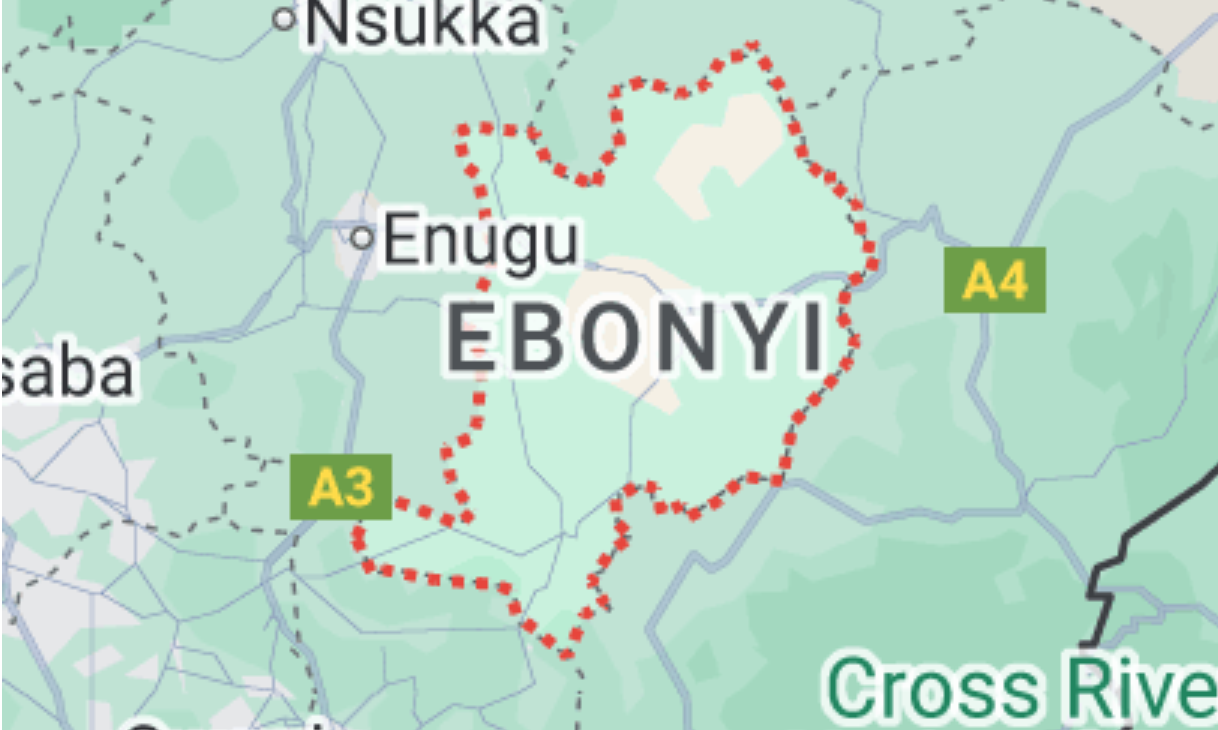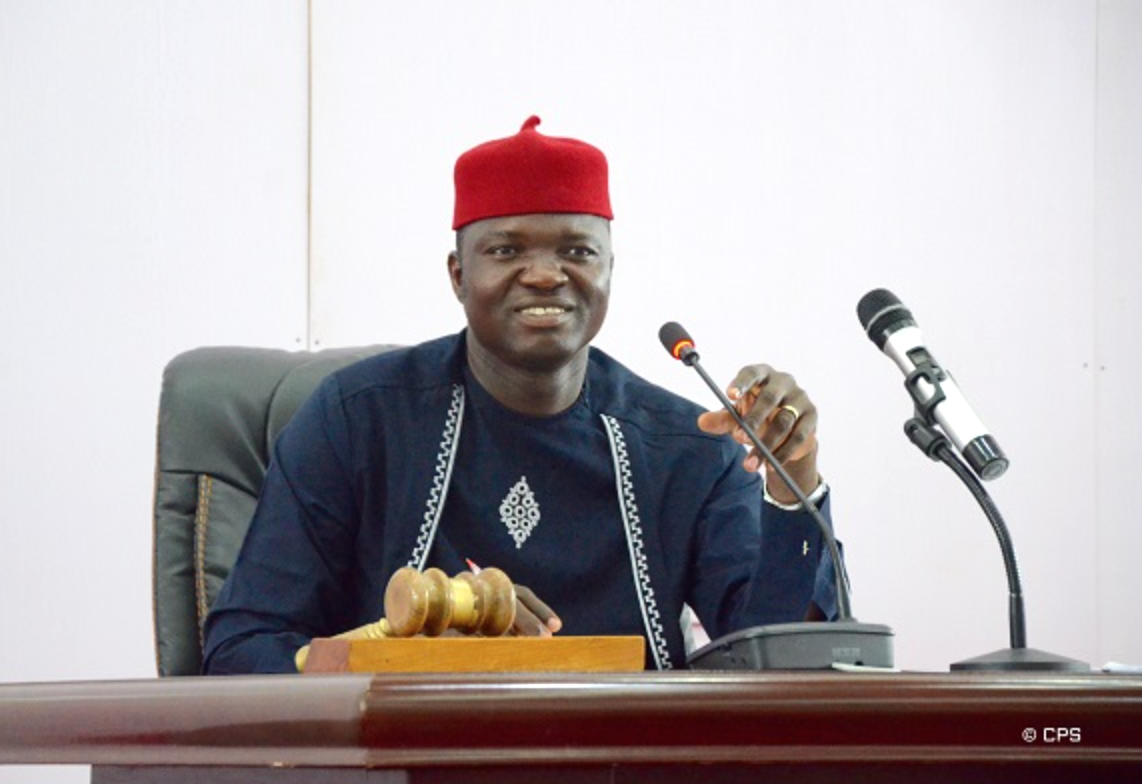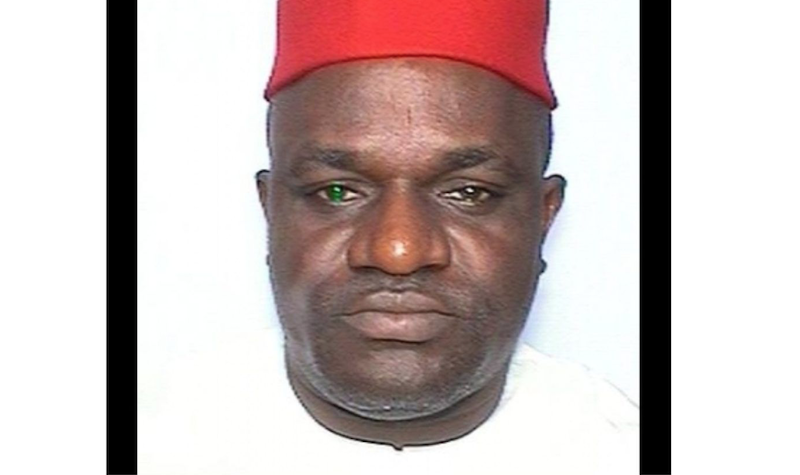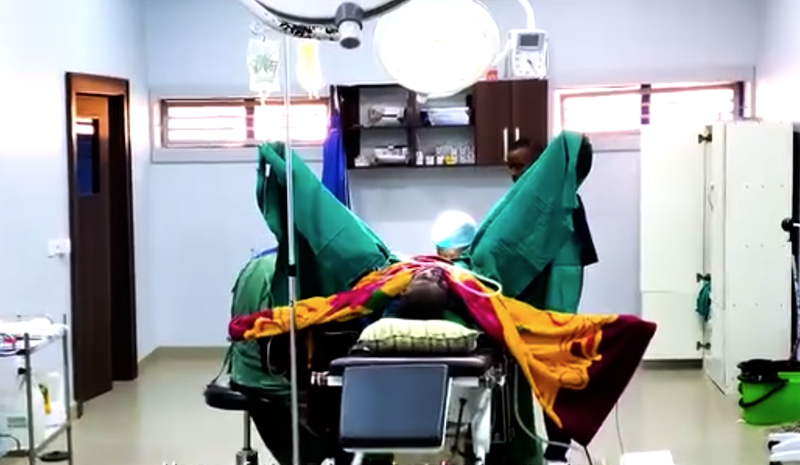By Jeff Ukachukwu
I remember the first time I drove past the sprawling rice fields skirting Abakaliki. The paddies shimmered like endless mirrors, but just beyond them rose a different kind of horizon—young vendors with phones in hand, girls in fashion-school aprons, and solar panels glinting on the roofs of freshly painted primary schools. It felt as if the state had pressed Refresh on its own browser. There was something unmistakably new in the air—something quietly radical yet deeply grounded in the lived aspirations of ordinary people.
That sensation of renewal is no accident. Governor Francis Ogbonna Nwifuru came to office promising a “People’s Charter of Needs,” a campaign slogan that could easily have dissolved into the fog of electoral afterthought. But instead, it has morphed—almost with urgency—into bricks, bytes, bursaries, and a fundamental shift in how the government measures success. A year on, Ebonyi is conducting a daring and coordinated experiment: what if you treat skills, knowledge, and health not as welfare items but as the core infrastructure of prosperity? What if you build a society where citizens are not waiting for handouts but are equipped to build their own ladders?
At the heart of this bold reimagination sits the Ministry of Skills and Job Creation, perhaps the most quietly disruptive ministry in the state. Its mandate—to train over 30,000 young people in skills such as ICT, fashion design, solar panel installation, and catering—is not just a typical development promise. It’s a community-driven initiative that is changing lives. The curriculum is practical. The mentorship is real. The community halls that once hosted political rallies now hum with the sounds of electric machines, routers, and sewing needles. And the graduates don’t walk home with mere certificates—they leave with full starter packs: laptops, tailoring machines, solar toolkits. These young people return to their communities not just trained but equipped. They don’t queue at job centres. They become job creators, contributing to the growth and prosperity of their communities.
Even more radical is the One Youth, One Skill scheme. This initiative aims to create at least one functional micro-enterprise in every one of the state’s 171 wards, ensuring that no part of Ebonyi is left behind in the skills economy. The idea is deceptively simple: train one youth in each ward with a skill that matches local demand, fund them through a conditional grant, and then connect them with a support system of cooperatives, mentors, and markets. Slowly, ward by ward, the state is cultivating a new class of grassroots entrepreneurs—young, agile, and community-rooted. The message is clear: you don’t need to migrate to Lagos to be productive. Innovation can begin at home.
But the human capital revolution doesn’t stop with skills. It is inseparable from the Governor’s belief that education must be repositioned as a public good, accessible to all and blind to privilege. That belief led to the historic declaration of a state of emergency in the education sector—an unflinching admission that for too long, classrooms had been collapsing, teachers were demoralised, and children were unprepared for a modern economy. In the aftermath of that declaration, over 312 primary and junior secondary schools are undergoing comprehensive rehabilitation, including modern classrooms, solar lighting, clean water, furniture, and digital tools. These aren’t cosmetic fixes. They are systemic reinvestments in learning equity, ensuring that every child in Ebonyi, especially those in rural areas, has access to quality education and a fair chance at a prosperous future.
Tertiary education, too, is being dragged into the 21st century with deliberate force. Ebonyi State University is undergoing a digital transformation: Wi-Fi is being deployed campus-wide, lecture halls are being outfitted with smartboards, and the longstanding grievances of academic staff overpay are being addressed. Tuition fees for students in state-run institutions have been significantly slashed to remove financial barriers for low-income families. And for those from indigent backgrounds, the government has awarded over 1,000 full scholarships—clear proof that brilliance should never be hostage to income.
But perhaps the most forward-looking move is the state’s decision to expand its university ecosystem. While many states are struggling to fund a single institution, Ebonyi is establishing two new universities: the ICT University in Oferekpe Agbaja and an Aeronautic University in Ezza. These are not just new institutions. They are strategic investments in the future. The ICT University is being built in recognition of the digital economy’s explosive potential, especially for Nigerian youth. The Aeronautic University signals a bold ambition to participate in Africa’s nascent aviation and aerospace industries. By placing these universities in underserved senatorial districts, the administration is also addressing regional imbalances and spreading access to advanced education and research. This strategic vision gives us hope for a brighter future for Ebonyi and its people.
In the health sector, the story is equally transformative. A total of 180 Primary Health Centres have been renovated, reequipped, and solar-powered. These centres are no longer the dark, dusty dispensaries of old. They are brightly lit hubs of maternal and child care, stocked with essential drugs and staffed with trained professionals. The ripple effects are immediate and measurable—fewer women are giving birth in unsafe conditions, infant survival rates are climbing, and preventive care is becoming the norm, not the exception.
And underpinning all this is Ebonyi’s Social Health Insurance Scheme, EBSHIA. With over 210,000 active enrollees, including market women, artisans, and civil servants, EBSHIA has become a model for inclusive healthcare financing in Nigeria. By pooling risk and reducing out-of-pocket expenses, the scheme protects families from the kind of medical poverty that can wipe out savings and futures. Now, a roadside trader with a cough can walk into a clinic, present a health card, and receive care with dignity.
The health transformation reaches beyond primary care. The Ebonyi State University Teaching Hospital is undergoing a significant upgrade, featuring modern MRI machines, a fully functional ICU, and renewed management structures. Meanwhile, the School of Nursing in Uburu, now fully accredited, is expanding to meet the rising demand for trained nurses. New hostels and lecture theatres are being built, and nursing students—many of whom once lived in cramped and unsafe lodgings—are finally receiving the infrastructure they deserve.
What sets Ebonyi’s human capital project apart is its interconnectedness. Skills development feeds directly into micro-enterprise creation. Education reforms build the talent pipeline for those enterprises. Health reforms ensure that sickness doesn’t erase the gains from either. It’s a triad that reinforces itself: invest in people’s minds, hands, and well-being—and watch productivity rise, social tensions fall, and dependency fade.
This is not to say the model is flawless. There are risks. Federal allocations are unstable. Inflation looms. Skilled workers, particularly in technology and healthcare, are being increasingly lured away by international recruiters. And with a programme as vast as One Youth, One Skill, there is always the danger of political interference, favouritism, or elite capture. But the state is not blind to these challenges. It is already exploring digital monitoring tools, performance-based budgeting, and donor partnerships to hedge against slippage. More importantly, the government is embracing transparency, with plans to make publicly available annual scorecards across various sectors.
So, how will we know if Ebonyi’s gamble has paid off? We may consider the number of graduates placed in jobs, the enrollment ratios, the decline in maternal mortality, and the number of successful micro-enterprises. But perhaps more revealing will be the intangible signs: the day a girl in Ezza codes an app that wins national recognition; the day a market woman buys her first freezer because her health insurance freed up income; the day a schoolboy in Izzi builds a drone in the Aeronautic University and inspires his village to imagine differently.
If those moments begin to multiply, then Ebonyi will have achieved something deeper than reform—it will have built a new kind of social contract, where the government becomes not the giver of handouts but the builder of ladders, and the citizen is no longer a passive recipient but a co-author of their own development story.
Driving out of Abakaliki at dusk, the rice paddies still shimmer, but now the horizon is crowded with signal towers, workshop chimneys, water tanks, and solar panels on clinic rooftops. The mirror of water has become a mirror of possibility, reflecting a state daring to believe that its most significant natural resource is not land or limestone but its people—trained, healthy, and unafraid to dream in code, couture, or aerodynamics. If Ebonyi can sustain that belief and stay the course, the quiet revolution it has begun may yet redefine what is possible—not just for itself but for the nation as a whole.
Dr Jeff Ukachukwu is a public affairs analyst and writes from Abakaliki.








